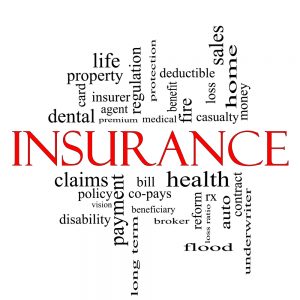 Are you contemplating which direction to go in regards to getting insurance? Two general options that people take are applying for insurance locally or applying online. While some insurance buyers like the convenience factor of getting their insurance online, that is usually where the advantages end with online companies. Online insurance companies tend to be mainstream corporations that look to reach far and wide for as many customers as possible, whereas a local insurance company only works to cater to people who live around their area.
Are you contemplating which direction to go in regards to getting insurance? Two general options that people take are applying for insurance locally or applying online. While some insurance buyers like the convenience factor of getting their insurance online, that is usually where the advantages end with online companies. Online insurance companies tend to be mainstream corporations that look to reach far and wide for as many customers as possible, whereas a local insurance company only works to cater to people who live around their area.
If possible, we suggest to skip the online route and get your insurance from a local provider, and here are four reasons why.
You’ll Have To Make The Tough Decisions On Your Own
With a local insurance company, in order to find the best policy for you, you only have to talk to your agent and tell them about your situation. Well all know how to talk to people, so that is usually all it takes to find the best policy. While talking with an agent can take some time, talking with an agent is not known to be directionless and painstaking like applying for insurance online.
Menus, forms, articles, all sorts of web pages are things that you need to read, review, navigate through and fill out, and that doesn’t even include all the policy options that are available to you. You’re left to apply for insurance on your own with limited help available to you.
Any Person You Talk To Would Require Dialing A 1-800 Number
1-800 numbers are not as dreadful as they seem, but people often find it a nuisance to have to call the number, listen to an automated system and then wait for what seems like a long period of time before they have the chance to talk to a human being about their insurance. It will instantly remind you of customer service for any given mainstream corporation, and you shouldn’t have to experience this if you don’t need to.
When you have questions or problems arise, you would like to have a person talk to you, and to be available once you dial their number. With a local insurance agent, it is great to have this advantage, as if you were dialing a friend. That isn’t to say that they might not be available to respond to your calls all the time, but still having the agent’s number is a big decisive factor for many to choose local insurance over online insurance.
You Are Your Own Insurance Guru
Not everybody picks up on insurance at a rapid pace, but thanks to insurance agents, we don’t need to. With a local agent, you are able to talk and interact with a person who lives and works around you. This person known the ins and outs about insurance and are often hired as a guide to help a person or family find what is best for them.
With an online insurance company, you don’t have this. There is no agent available to help you choose the right plan or policy, which means you need to spend some time researching which insurance plan would be the best option for you. And even then, you could still have some doubts about whether or not the plan is something to pursue.
Alternatively, you can call the 1-800 number to get advice from a representative of that online company, but because you don’t have an assigned agent like you would locally, you will get paired with somebody different every time you call the 1-800 number. There are instances where the representative that you are matches with can be super helpful with you, and you wish that you can call that person every time you need help, but you can feel the same way all the time by opting to talk to a local insurance agent.
You Don’t Have A Human To Interact With In The Event Of Damage Or Disaster
Lost or damaged property means that you will need a claim to get filed. If you have local insurance, your agent can likely file your claim for you. If you have online insurance, you will need to file it on your own. This is important for a couple of reasons.
During a time of stress, having a trusted person to talk to is very important. Hearing a familiar voice talking to you, whether in person or on the phone should be very comforting and satisfying in a possible time of need. But not only can a local insurance agent be good to talk to amid an unfortunate event, but they can file your claim so that you don’t have to. With your mind of many other things, you won’t have to worry about doing the paperwork. Just tell them what happened in detail, and he or she will handle the claim from there.
It’s great to have somebody in your own community to turn to, which is why local insurance is oftentimes the better choice over online insurance. Give us a call today and our team will be happy to review your options with you!
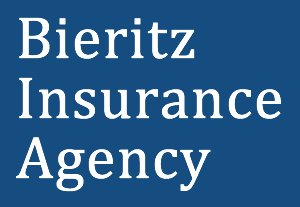
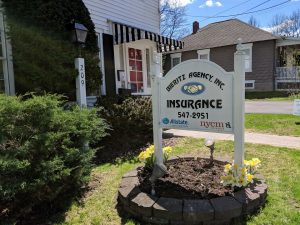
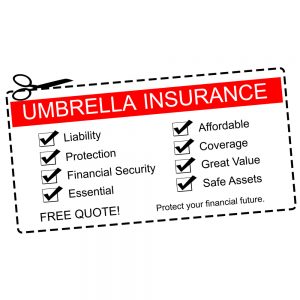

 It always pays to have insurance — that’s common knowledge. Yet sometimes trying to cut through the terminology and jargon can prove difficult. When shopping for insurance or preparing to file a claim, you may find that you need a little guidance on what some of these terms mean; such is the case with the terms Actual Cash Value, or ACV and Replacement Cost.
It always pays to have insurance — that’s common knowledge. Yet sometimes trying to cut through the terminology and jargon can prove difficult. When shopping for insurance or preparing to file a claim, you may find that you need a little guidance on what some of these terms mean; such is the case with the terms Actual Cash Value, or ACV and Replacement Cost.
 When you are looking to protect yourself and your family, you need to consider life insurance. Life insurance is the financial security net that helps your family get through a rough time. But, when shopping for life insurance coverage there are several factors that can impact your premiums. These factors can include your age and gender. A carrier will also take into consideration not only your health history but your family’s. The carrier may also look at what you do for your career and your hobbies. Your choice in your insurance coverage also affects your premium.
When you are looking to protect yourself and your family, you need to consider life insurance. Life insurance is the financial security net that helps your family get through a rough time. But, when shopping for life insurance coverage there are several factors that can impact your premiums. These factors can include your age and gender. A carrier will also take into consideration not only your health history but your family’s. The carrier may also look at what you do for your career and your hobbies. Your choice in your insurance coverage also affects your premium.



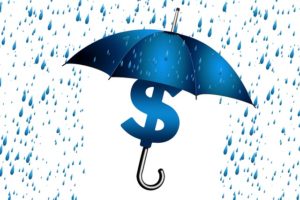 If you own a business, the thought of a lawsuit threatening your company or an accident destroying your property will most likely fill you with a sense of dread. If you are not insured in the event of a business calamity, this sense of dread is warranted. Most people who are not insured find it difficult to conceptualize a future where their livelihood is at stake, since the threat feels so distant, so improbable. However, if your business is in danger of a liability claim, impeded by a natural disaster, or losing income after an unexpected setback, having the right insurance can be the difference between remaining unscathed and financially secure or closing your doors for good.
If you own a business, the thought of a lawsuit threatening your company or an accident destroying your property will most likely fill you with a sense of dread. If you are not insured in the event of a business calamity, this sense of dread is warranted. Most people who are not insured find it difficult to conceptualize a future where their livelihood is at stake, since the threat feels so distant, so improbable. However, if your business is in danger of a liability claim, impeded by a natural disaster, or losing income after an unexpected setback, having the right insurance can be the difference between remaining unscathed and financially secure or closing your doors for good.  This might be a little far fetched but it is wise to consider the risks when you allow someone to hunt on your property
This might be a little far fetched but it is wise to consider the risks when you allow someone to hunt on your property How do you know if you have a high risk pet that will affect either your ability to get insurance or the cost of your current homeowners policy? Insurance companies consider certain dog breeds to be high risk because these breeds tend to be more aggressive and are therefore deemed to be more dangerous:
How do you know if you have a high risk pet that will affect either your ability to get insurance or the cost of your current homeowners policy? Insurance companies consider certain dog breeds to be high risk because these breeds tend to be more aggressive and are therefore deemed to be more dangerous: It’s always an exciting time when your child graduates high school and begins a new career as a college student. Parents often face a mixture of emotions as they watch their children transition from high school to college. On one hand, your student has worked hard to graduate, and is stepping into a new life. One the other, that life is often away from the comforts and familiar faces of their hometown. Bieritz Insurance understands this is both an exciting and sometimes challenging time in the lives of both the students and the parents, and wants to help add an extra sense of security for both.
It’s always an exciting time when your child graduates high school and begins a new career as a college student. Parents often face a mixture of emotions as they watch their children transition from high school to college. On one hand, your student has worked hard to graduate, and is stepping into a new life. One the other, that life is often away from the comforts and familiar faces of their hometown. Bieritz Insurance understands this is both an exciting and sometimes challenging time in the lives of both the students and the parents, and wants to help add an extra sense of security for both.  Summer. It’s the time of year when the days are long and hot. The kids are out of school and nothing seems like a better idea than hanging out around the pool with your family, hosting backyard bbq parties, and enjoying those extra hours of sunshine. It’s not surprising, then, that many homeowners turn their eyes to their own backyards to contemplate the addition of a pool to their property. Homeowners that already have a pool installed will spend time cleaning and prepping the area in anticipation of summer parties and get togethers. Whether you have a pool or are planning to install one, here are some safety tips to help you enjoy it more and worry less.
Summer. It’s the time of year when the days are long and hot. The kids are out of school and nothing seems like a better idea than hanging out around the pool with your family, hosting backyard bbq parties, and enjoying those extra hours of sunshine. It’s not surprising, then, that many homeowners turn their eyes to their own backyards to contemplate the addition of a pool to their property. Homeowners that already have a pool installed will spend time cleaning and prepping the area in anticipation of summer parties and get togethers. Whether you have a pool or are planning to install one, here are some safety tips to help you enjoy it more and worry less. Life insurance isn’t a sexy topic, but at some point, it is one that most people have to think about. The question of what happens to your family in the event of your death is an important one to consider. This comes about sometimes after significant life status events – perhaps a marriage, the birth of a child or purchasing a home. Life insurance helps protect your loved ones in the event of your death. It can cover your funeral expenses, pay off your mortgage or provide resources to replace your income for a period of time. Two of the more prevalent types of life insurance are term life and whole life. Knowing a bit about the differences between these two types of insurance can help you to decide which might be the best product for your needs.
Life insurance isn’t a sexy topic, but at some point, it is one that most people have to think about. The question of what happens to your family in the event of your death is an important one to consider. This comes about sometimes after significant life status events – perhaps a marriage, the birth of a child or purchasing a home. Life insurance helps protect your loved ones in the event of your death. It can cover your funeral expenses, pay off your mortgage or provide resources to replace your income for a period of time. Two of the more prevalent types of life insurance are term life and whole life. Knowing a bit about the differences between these two types of insurance can help you to decide which might be the best product for your needs. In our little corner of the world, the vacation rental business is booming. While year-round lodging opportunities (hotels, motels, bed and breakfasts, inns, etc.) continue to exist as a mainstay of accommodation options in our area – there are many properties that now cater mostly to the thirteen week summer season – primarily targeted to the baseball camp family audience for weekly rentals. Some of these properties contract with local managers to list and rent their homes as summer vacation rentals and others (more each day) list with one or more of the national rental chains like HomeAway, VRBO (Vacation Rental By Owner) or AirB&B.
In our little corner of the world, the vacation rental business is booming. While year-round lodging opportunities (hotels, motels, bed and breakfasts, inns, etc.) continue to exist as a mainstay of accommodation options in our area – there are many properties that now cater mostly to the thirteen week summer season – primarily targeted to the baseball camp family audience for weekly rentals. Some of these properties contract with local managers to list and rent their homes as summer vacation rentals and others (more each day) list with one or more of the national rental chains like HomeAway, VRBO (Vacation Rental By Owner) or AirB&B.  Many people think of March and April as the time of year for Spring Cleaning. The snow and ice begin to melt away and we start to think about spending more time outdoors. We look at things that we need to to outside in our yards for annual maintenance, and we begin to prepare for tax season – where we look at our financial documents for the year and assess our financial ‘health’. It’s also a great time of year to conduct an annual review of your insurance policies.
Many people think of March and April as the time of year for Spring Cleaning. The snow and ice begin to melt away and we start to think about spending more time outdoors. We look at things that we need to to outside in our yards for annual maintenance, and we begin to prepare for tax season – where we look at our financial documents for the year and assess our financial ‘health’. It’s also a great time of year to conduct an annual review of your insurance policies. Having a new driver in your family can be a nerve-wracking experience. As a parent, your mind somehow jumps to all of the things that can possibly go wrong, and how your newly-permitted driver is yet unequipped to handle different situations in a car. Teaching your teen to drive takes patience and the ability to be objective – you need to provide guidance instead of criticism. We hope the following five tips will help you as you wind your way through these sometimes stressful moments!
Having a new driver in your family can be a nerve-wracking experience. As a parent, your mind somehow jumps to all of the things that can possibly go wrong, and how your newly-permitted driver is yet unequipped to handle different situations in a car. Teaching your teen to drive takes patience and the ability to be objective – you need to provide guidance instead of criticism. We hope the following five tips will help you as you wind your way through these sometimes stressful moments! Travel insurance is insurance that is intended to cover medical expenses, trip cancellation, lost luggage, flight accident and other losses incurred while traveling, either internationally or domestically. (
Travel insurance is insurance that is intended to cover medical expenses, trip cancellation, lost luggage, flight accident and other losses incurred while traveling, either internationally or domestically. (